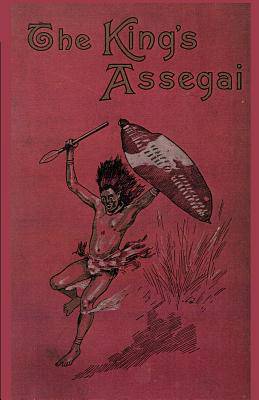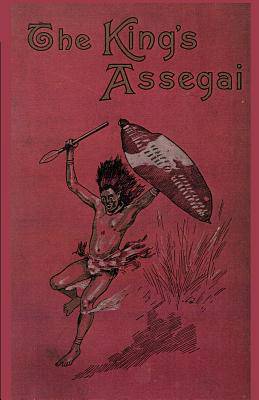
- Afhalen na 1 uur in een winkel met voorraad
- Gratis thuislevering in België vanaf € 30
- Ruim aanbod met 7 miljoen producten
- Afhalen na 1 uur in een winkel met voorraad
- Gratis thuislevering in België vanaf € 30
- Ruim aanbod met 7 miljoen producten
Omschrijving
Set in the turbulent early 1800s before British colonisation in South Africa, The King's Assegai(1894) is a gripping narrative of a young Zulu warrior's passage through crisis. Together with an army of fellow Zulus, Untuswa flees the harsh rule of the Zulu king, Shaka, to establish a new nation under a new leader, Umzilikazi.
Untuswa quickly earns the King's favour and is appointed his chief messenger; emboldened by this honour, he asks the King's permission to marry. Laughing, the King promises to give Untuswa not only permission to marry, but also his assegai--his spear, which in his hand is symbol of his authority--but only if Untuswa performs a deed braver and bolder than any he has heard of. Untuswa, determined to claim performance of this promise, fights ferociously against enemy tribes, confronts the terrifying magic of the witch-doctors, and risks death at the hands of cannibals in the mountains. But these dangers are nothing compared to the fate that awaits him when he does the unthinkable--elope with the King's intended bride.
The first of Bertram Mitford's tetralogy of historical Zulu novels, The King's Assegai is remarkable for being a novel written by a white man, but peopled entirely by African characters. Based on Mitford's own experiences in South Africa and local oral tradition, *The King's Assegai* is not simply a great British novel about Africa, but, as Gerald Monsman argues in his introduction, a great African novel. Long out of print and neglected, The King's Assegai deserves a place alongside H. Rider Haggard's Nada the Lily as precursor to later established African classics such as Chinua Achebe's Things Fall Apart.
Specificaties
Betrokkenen
- Auteur(s):
- Uitgeverij:
Inhoud
- Aantal bladzijden:
- 168
- Taal:
- Engels
- Reeks:
Eigenschappen
- Productcode (EAN):
- 9781934555132
- Verschijningsdatum:
- 16/05/2007
- Uitvoering:
- Paperback
- Formaat:
- Trade paperback (VS)
- Afmetingen:
- 140 mm x 216 mm
- Gewicht:
- 199 g

Alleen bij Standaard Boekhandel
Beoordelingen
We publiceren alleen reviews die voldoen aan de voorwaarden voor reviews. Bekijk onze voorwaarden voor reviews.








